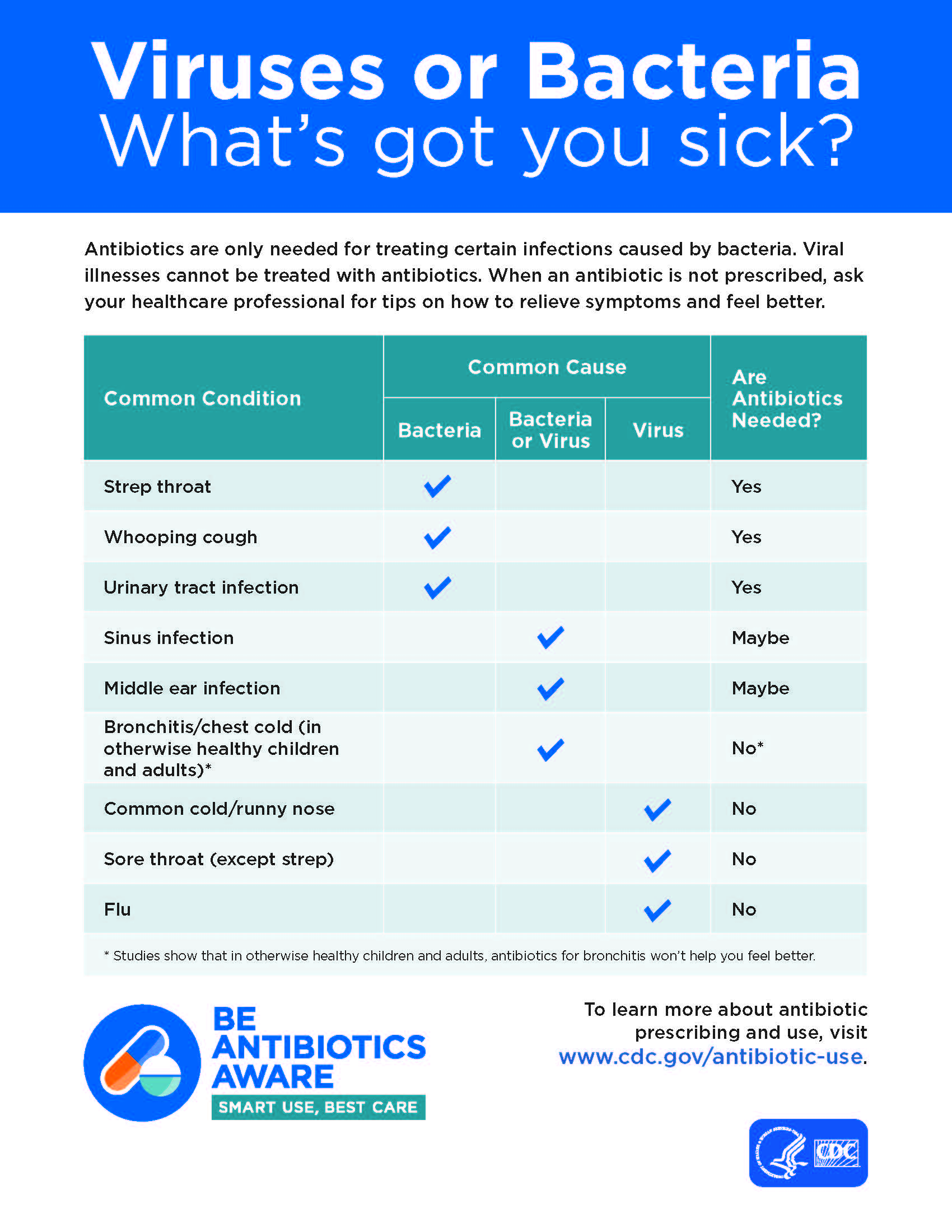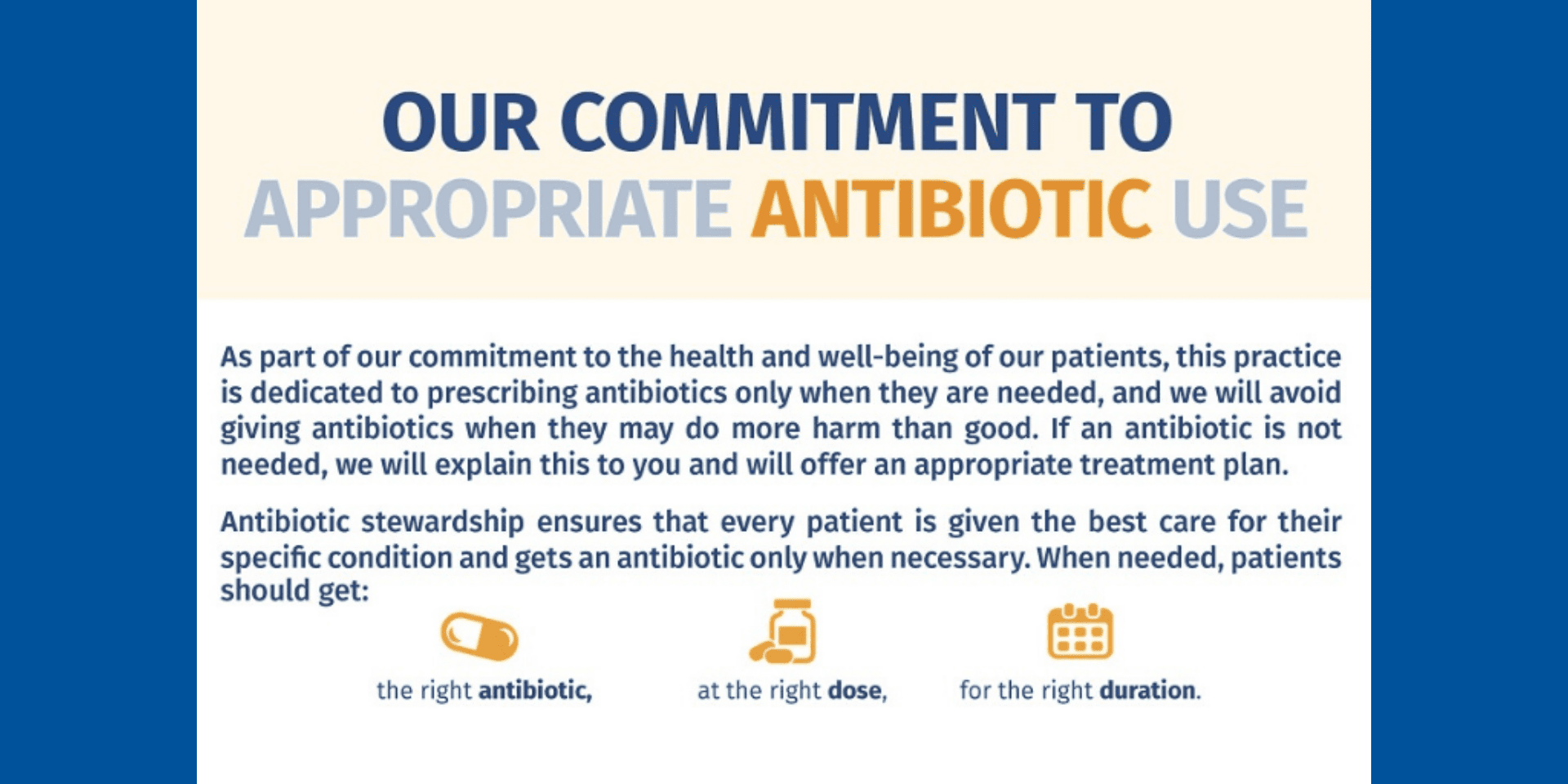
Each year in the US, more than two million individuals become sick with infections caused by antibiotic-resistant bacteria, and more than 23,000 die as a result of these infections. Antibiotic resistance happens when bacteria develop the ability to defeat the drugs designed to kill them.
Antibiotic resistance is a pressing public health issue, and together we can reduce this threat by optimizing antibiotic use and providing the best patient care. All stakeholders can play an important role in improving how antibiotics are used, to ensure that these drugs are available and effective when most needed.
To help share information about the importance of appropriate antibiotic use during US Antibiotic Awareness Week (#USAAW18), the National Foundation for Infectious Diseases (NFID) has compiled the following educational infographics and resources on the threat of antibiotic resistance and the importance of appropriate antibiotic use:
1. Antibiotic Stewardship Pledge: Commitment to Appropriate Antibiotic Use
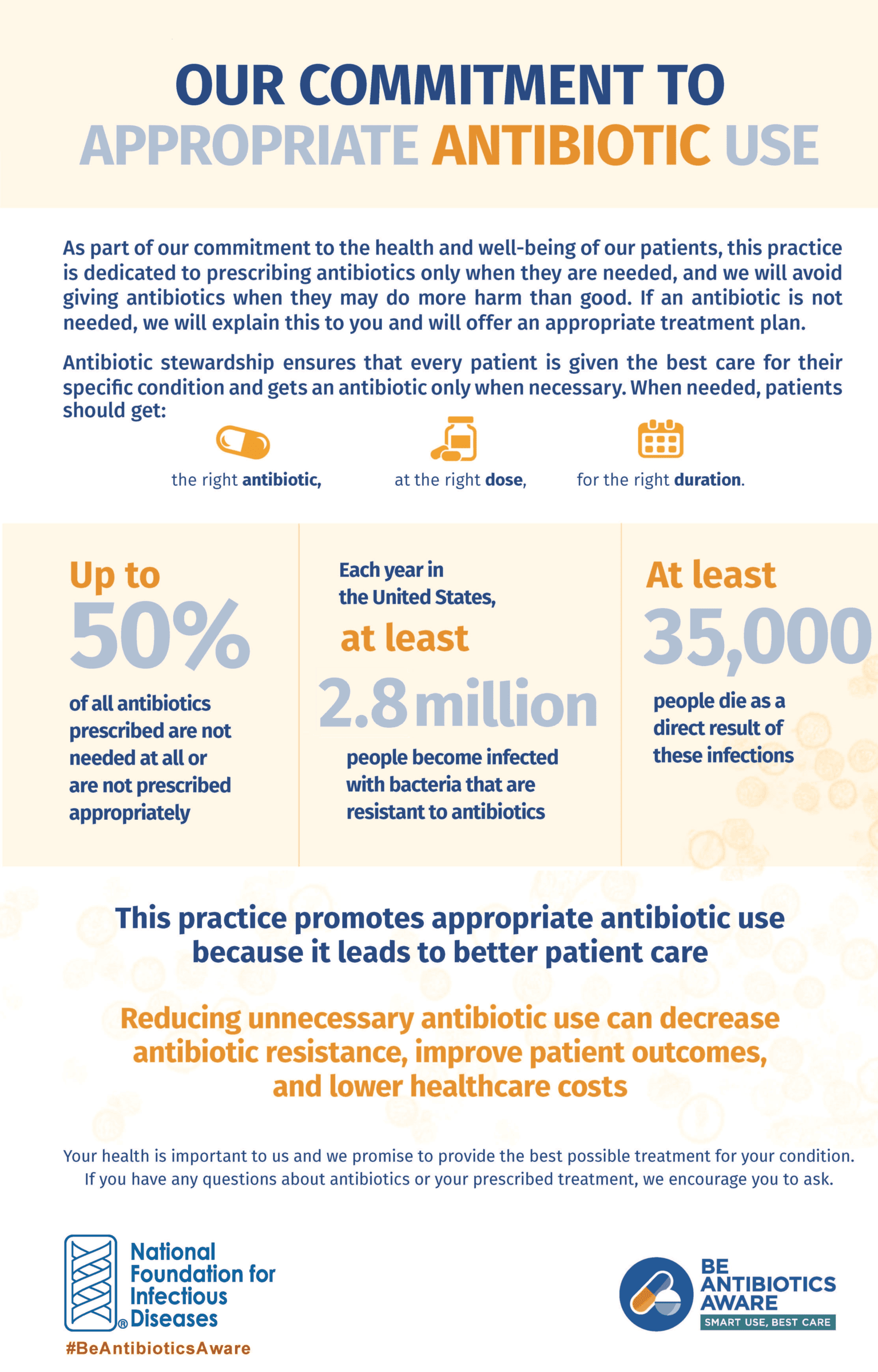
Source: National Foundation for Infectious Diseases
2. The Impact of C. difficile Infection (CDI)

Source: National Foundation for Infectious Diseases
3. What You Need to Know About Antibiotic Resistance
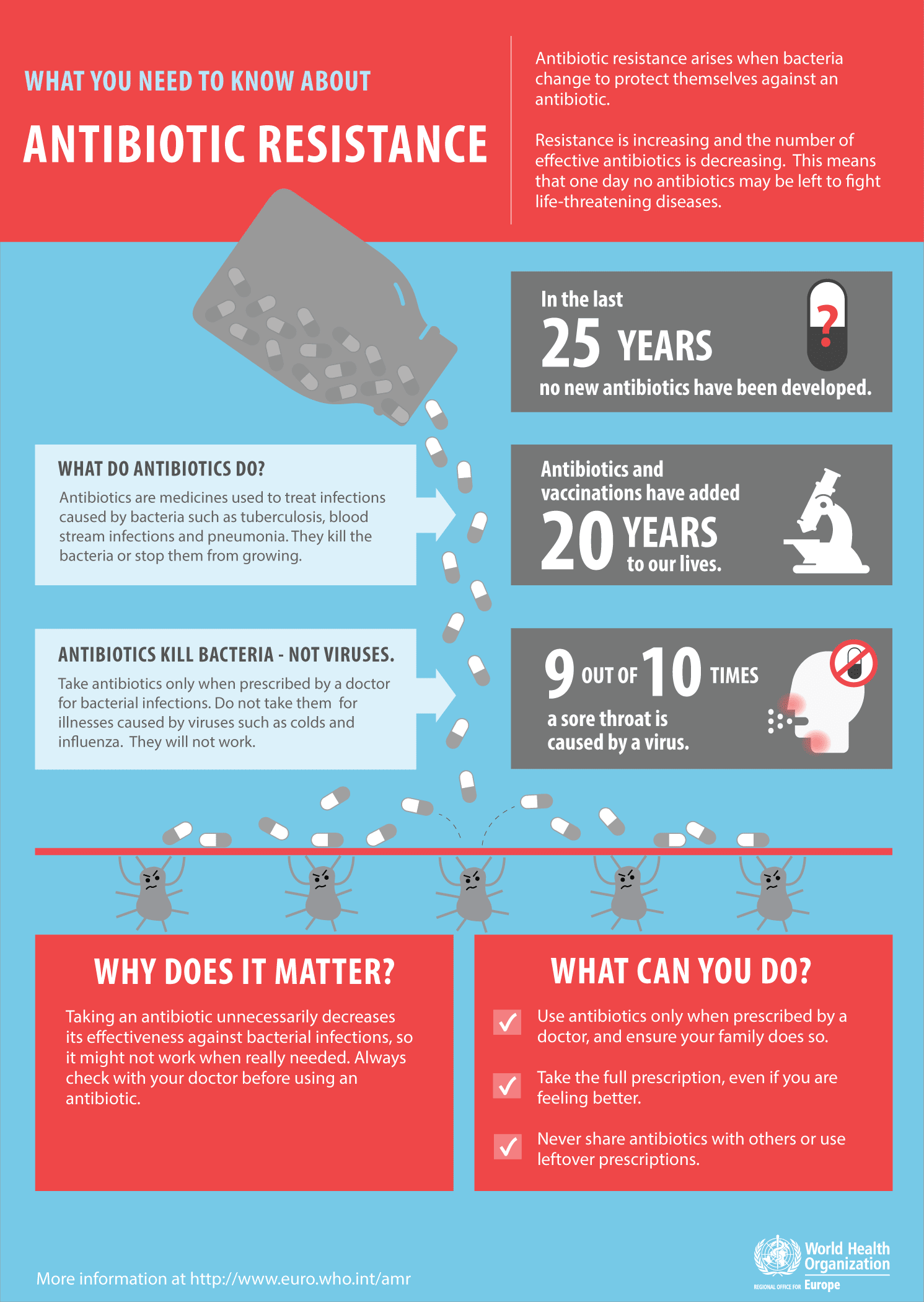
Source: World Health Organization
4. Misusing and Overusing Antibiotics Puts Us All at Risk

Source: World Health Organization
5. Viruses or Bacteria: What’s Got You Sick?
Source: Centers for Disease Control and Prevention
6. Antibiotic Resistance: The Global Threat

Source: Centers for Disease Control and Prevention
Everyone has a role to play in preventing antibiotic resistance!
To join the conversation and get the latest news on infectious diseases, follow NFID on Twitter using the hashtags #AntibioticSmart and #BeAntibioticsAware, like us on Facebook, follow us on Instagram, join the NFID Linkedin Group, and subscribe to NFID Updates.
Related Posts
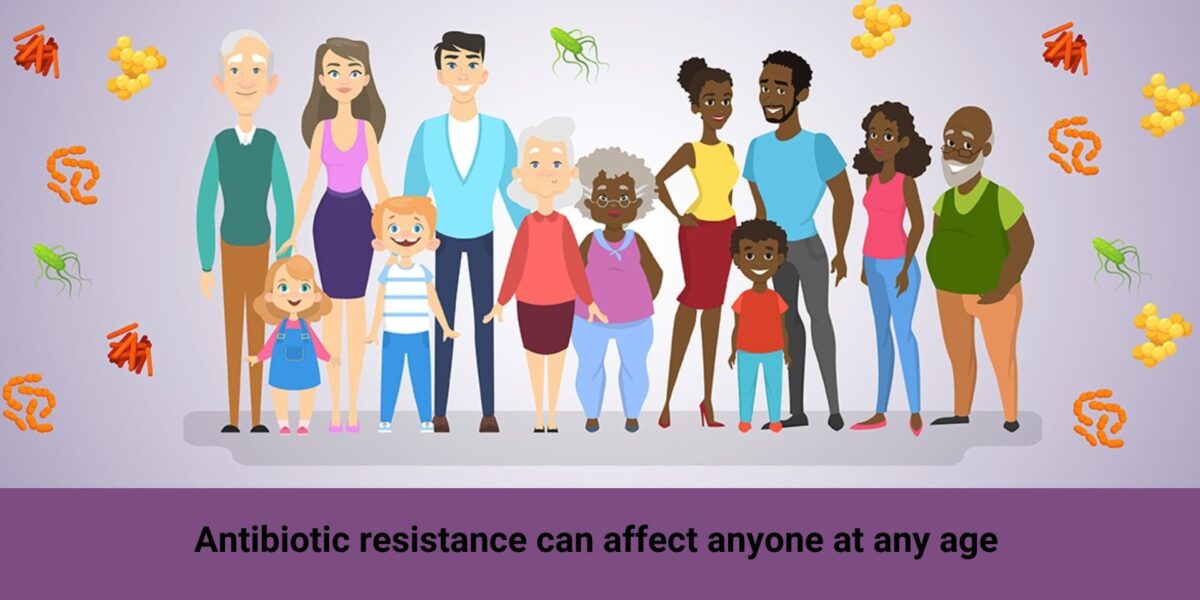
5 Things To Know about Antibiotic Resistance
There are steps everyone can take to help protect against drug-resistant infections
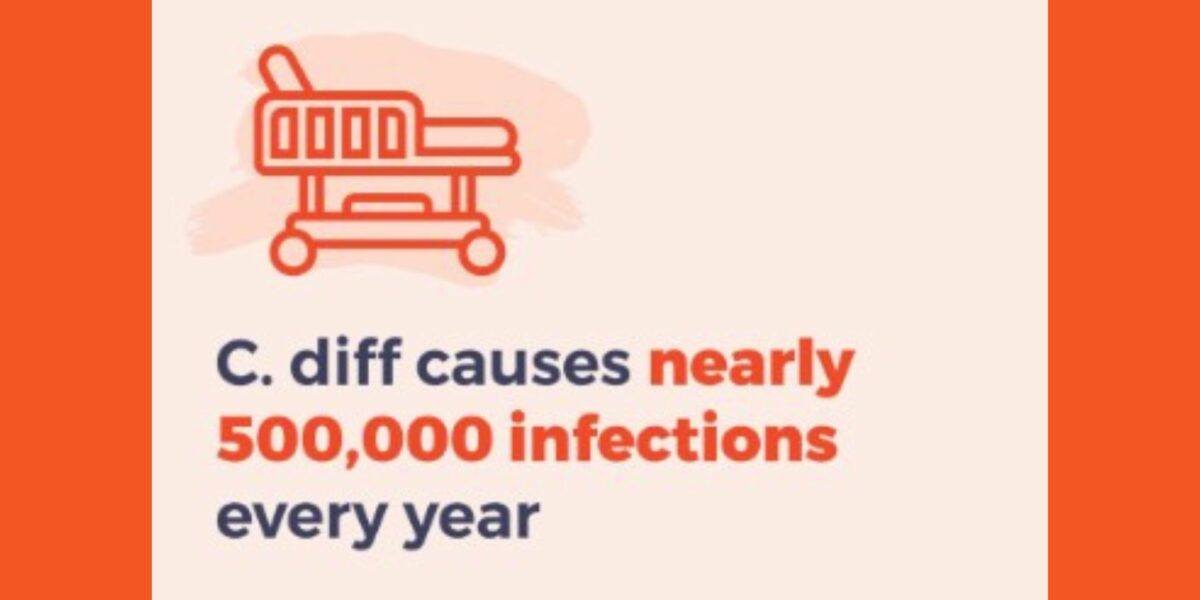
C. diff: An Urgent Public Health Threat
November is C. diff Awareness Month, an annual opportunity to raise awareness about this common but potentially deadly infection
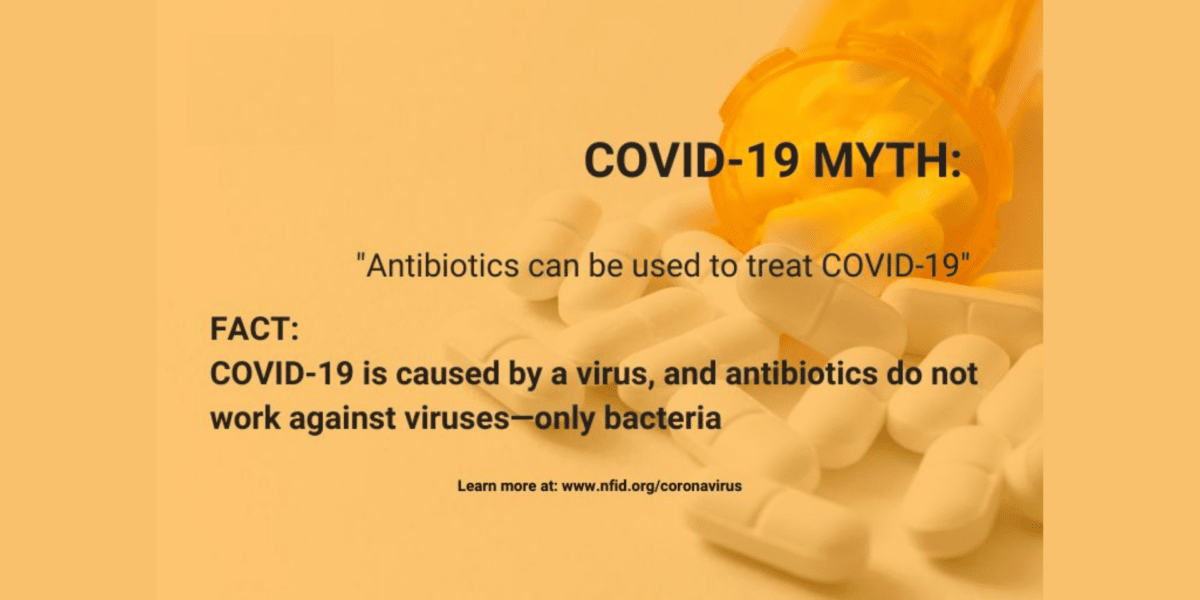
A Perfect Storm: Antibiotic Resistance and COVID-19
COVID-19 disease caused surges in hospitalization with a proportion of patients experiencing severe disease that led to prolonged hospitalization and the use of invasive medical devices. At the same time, the pandemic also diminished the ability of hospitals to perform optimal infection prevention and antibiotic stewardship activities as resources were diverted to COVID-19 response …

